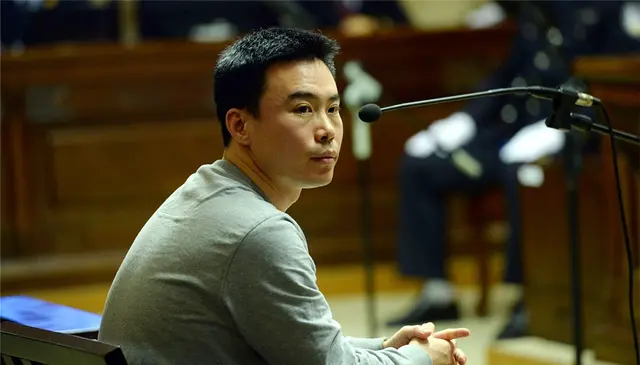By APD writer Lu Jiafei
Washington, Feb.14 (APD) -- In a weird way, rather than from the presidency, we are repeatedly getting assurance from the Pentagon of U.S. commitment to peacefully solving the Korean Peninsula nuclear issue.
While U.S. Defense Secretary Jim Mattis has been consistent in his message that the U.S. policy “is firmly in the diplomatic lane,” U.S. President Donald Trump’s contradictory statements (or tweets to be more accurate) and blatant disdain for diplomacy have offered another daunting prospect of the nuclear crisis.
So, when the news came lately after the opening ceremony of the PyeongChang 2018 Winter Olympics in South Korea that the Trump administration was signaling its willingness to talk with the Democratic People’s Republic of Korea (DPRK), I wasn’t too much optimistic.
On his way home from South Korea early this week, U.S. Vice President Mike Pence told the Washington Post that while the Trump administration would “continue and intensify” its maximum campaign against the DPRK, “if you want to talk, we’ll talk.”
President Moon Jae-in of South Korea during a televised news conference in Seoul on Wednesday.
Then, U.S. Secretary of State Rex Tillerson chipped in, noting on a separate occasion that “we really need to have some discussions that precede any formal negotiations to determine whether the parties are in fact ready to engage in something meaningful.”
It was not the first time the Trump administration had floated the possibility of holding “talks about talks” with the DPRK. Each time, however, Trump the narcissistic bully singlehandedly dashed the hope with his regular, uncontrolled bursts of anger and spleen.
In last October, Trump undercut Tillerson on Twitter when the top U.S. diplomat said in Beijing that “the most immediate action that we need is to calm things down” and there would be “a process of engagement.”
“I told Rex Tillerson, our wonderful Secretary of State, that he is wasting his time trying to negotiate with Little Rocket Man," Trump erupted on Twitter. "Save your energy Rex, we'll do what has to be done!”
Last December, the world again held its breath in hopefulness temporarily when Tillerson, the man supposed to represent Trump on foreign policies, appealed to the DPRK publicly that “let’s just meet.”
“We can talk about the weather if you want,” Tillerson said at the time. “We can talk about whether it’s going to be a square table or a round table if that’s what you’re excited about. But can we at least sit down and see each other face to face.”
Tillerson’s appeal was immediately met with the White House’s dismissal and Tillerson walked back his position shortly afterwards.
This time, engaged fiercely in debates about U.S. immigration reforms and the investigation into whether his campaign colluded with Russians in the 2016 election, Trump so far hasn’t shared his ravings on the prospect for holding talks with the DPRK.
Lower your expectation. That would be my suggestion.
In fact, several menacing signs arising recently have put into question the Trump administration’s reliability on peacefully solving the DPRK nuclear issue.
Firstly, it was Trump’s decision to scrap his South Korea ambassador pick Victor Cha over Cha’s opposition to preemptive strikes on the DPRK.
Quoting people familiar with the appointment, the Washington Post reported that Cha’s nomination was terminated after the Georgetown University professor and a former adviser to President George W. Bush expressed concerns about the Trump administration’s consideration of a limited and preemptive strike on the DPRK.
Then, in his first State of the Union address last month, Trump, thankfully, stayed clear of his regular rhetoric. But he did not mention diplomacy when slamming the DPRK for its nuclear program and human rights record.
Police officers on Wednesday outside the venue where speed-skating events at the Winter Olympics are to be held. In a conciliatory gesture this week, North Korea promised to send a delegation to the Games in Pyeongchang, South Korea.
Lastly, the Trump administration never shies away from provocation. Its latest Nuclear Posture Review demands development of a new, smaller nuke to deter the DPRK from striking the United States. Vice President Pence touted his trip to the PyeongChang Olympics as a U.S. effort to counter the DPRK’s “propaganda.” He also announced “the toughest and most aggressive” sanctions yet against the DPRK.
In his first year in office, Trump endeavored to fulfil his campaign pledges. Of all his grandiose promises on the campaign trail, Donald Trump’s pledge to deliver peace was rarely promising. He should fulfil that as well.
Lu Jiafei, researcher of APD Institute. After spending one year in Palestine covering the Israeli-Palestinian conflict between 2013 and 2014, Lu moved to Washignton, D.C. and covered the 2016 U.S. presidential election till the very end of Donald Trump’s upset victory. He is a political contributor to APD.
(ASIA PACIFIC DAILY)
 简体中文
简体中文

